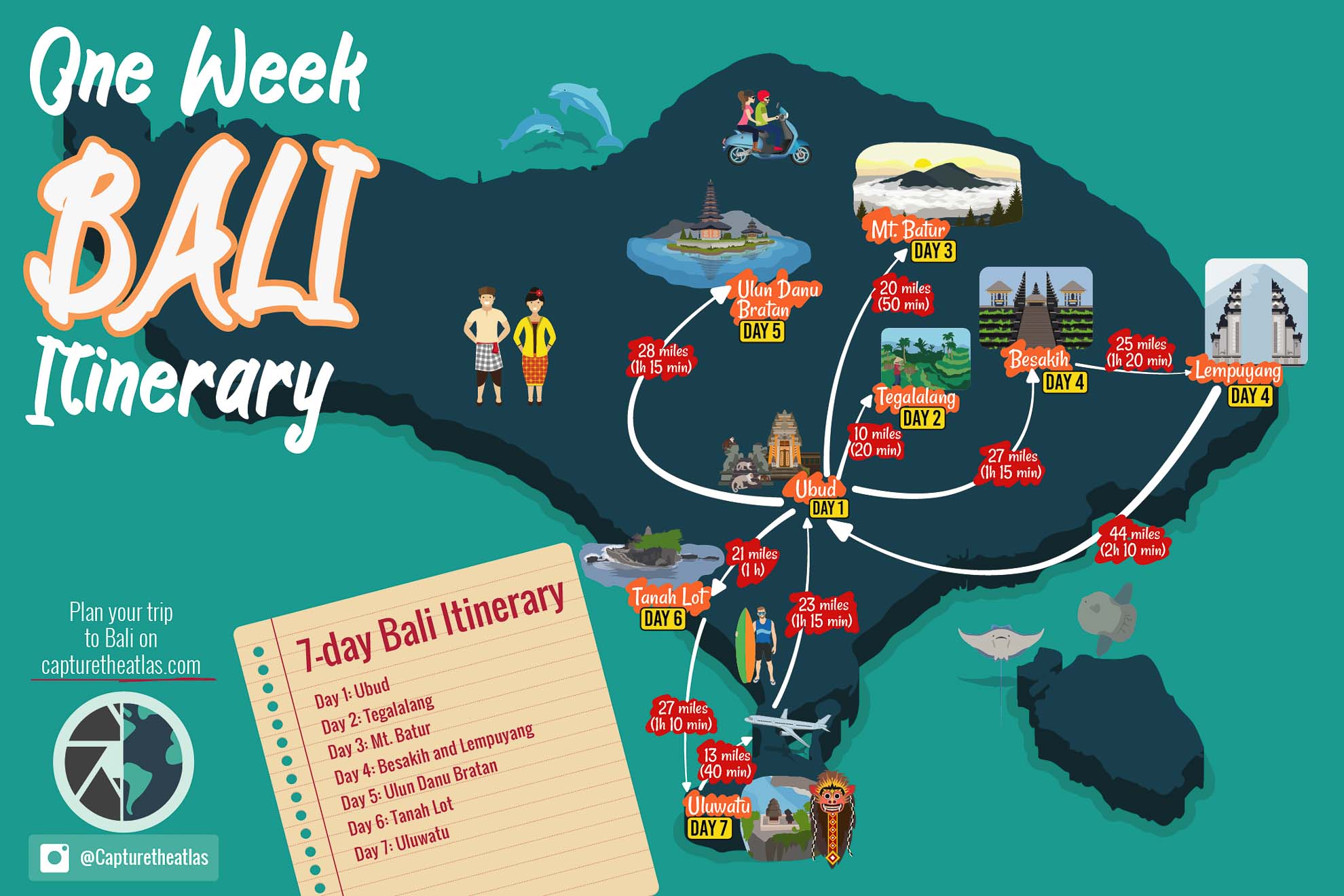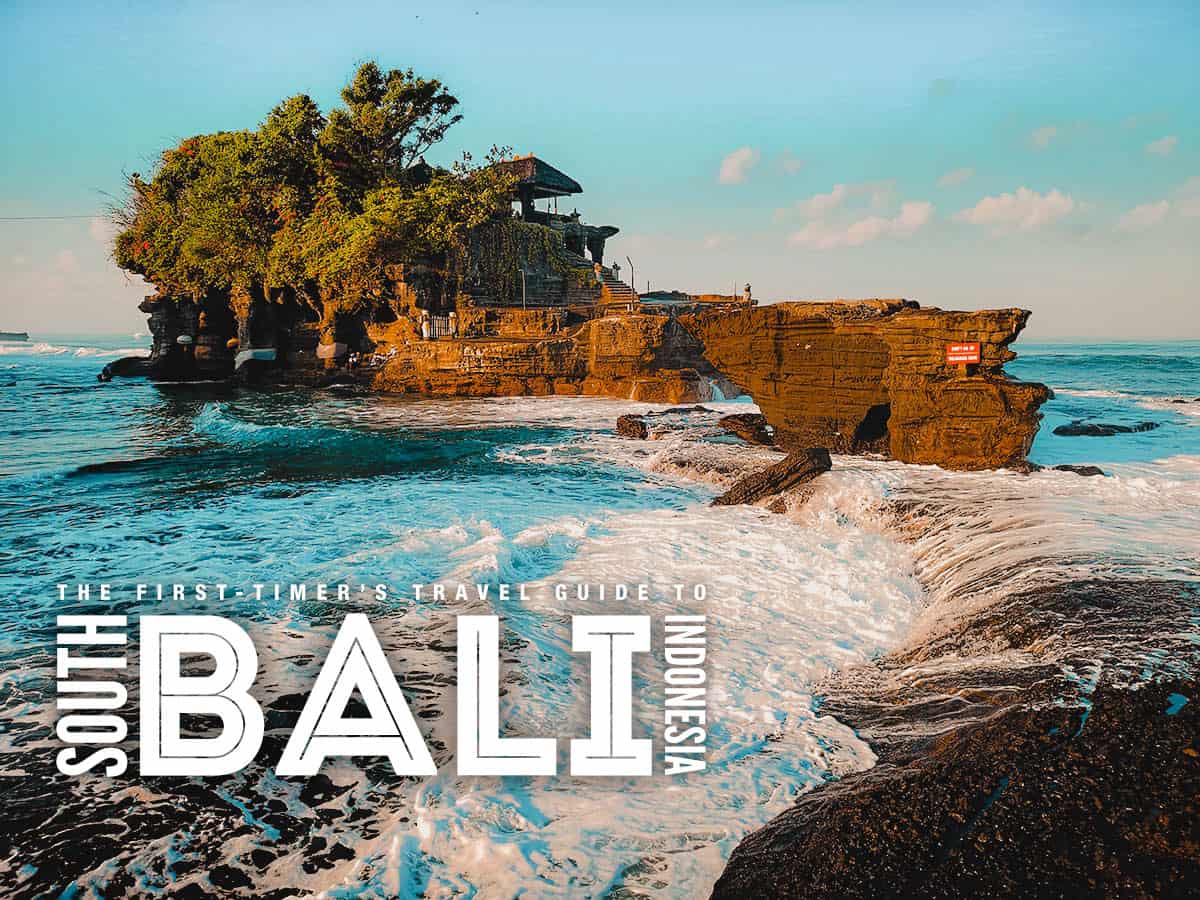
Bali. The very name conjures images of emerald rice paddies, ancient temples, sun-drenched beaches, and a culture steeped in spirituality. Known as the "Island of the Gods," this Indonesian paradise offers a unique blend of natural beauty, vibrant traditions, and modern comforts that beckons travelers from across the globe. Whether you dream of spiritual retreats, adrenaline-pumping adventures, or simply lounging by an infinity pool, Bali promises an unforgettable experience.
This comprehensive guide will walk you through everything you need to know to plan your perfect Balinese escape, covering its captivating history, top attractions, essential travel tips, accommodation options, transportation, and the best time to visit.
A Glimpse into Bali’s Soul: History and Culture

Related Articles about Bali: Your Comprehensive Guide to the Island of the Gods:
- Marrakech: A Symphony of Senses, and Where to Rest Your Head in its Embrace
- Cape Town: A Symphony of Natural Wonders, Rich History, and Vibrant Culture
- Unveiling the Magic: A Comprehensive Guide to Traveling in Turkey
- Cape Town’s Crown Jewels: A Guide to the City’s Finest Hotels and Unforgettable Experiences
- Lebanon: A Journey Through Ancient Wonders, Vibrant Culture, and Unyielding Spirit
To truly appreciate Bali, one must understand its rich history and the unique culture that defines it. Unlike the rest of predominantly Muslim Indonesia, Bali is a bastion of Hinduism, specifically a distinct form known as Agama Hindu Dharma. This religious identity is the bedrock of Balinese life, influencing everything from daily rituals to art and architecture.
Bali’s history is deeply intertwined with the decline of the Majapahit Empire in Java. As the powerful Hindu kingdom fell to the rising Islamic sultanates in the 15th and 16th centuries, many Javanese nobles, priests, artists, and intellectuals fled to Bali, bringing with them a wealth of Hindu-Javanese culture, art, and literature. This migration solidified Bali’s Hindu identity and infused it with an artistic legacy that continues to flourish today.
The Dutch arrived in the 17th century, but full colonial control over Bali wasn’t established until the early 20th century after a series of brutal "puputan" (ritual suicides) by Balinese royalty who chose death over surrender. Despite Dutch rule, Bali’s strong cultural identity remained largely intact. After Indonesia gained independence in 1945, Bali began to emerge as a tourist destination, initially attracting artists and bohemian travelers, and later, a wider global audience.
Today, Balinese culture is a living, breathing tapestry. Daily life is punctuated by elaborate ceremonies, offerings (canang sari) placed everywhere, and the mesmerizing sounds of gamelan music. Art, dance, and traditional crafts are not merely performances but integral expressions of devotion and community. This deep spiritual connection, combined with the island’s natural beauty, creates an atmosphere of serenity and wonder that captivates every visitor.
Planning Your Balinese Escape: Essential Travel Tips
Before you pack your bags, here are crucial tips to ensure a smooth and enjoyable trip:
- Visa Requirements: Most nationalities are eligible for a Visa-on-Arrival (VOA), typically valid for 30 days and extendable for another 30 days. You can also apply for an e-VOA online before you travel, which can save time at the airport. Always check the latest requirements for your specific nationality with the Indonesian embassy or consulate.
- Packing Essentials:

- Lightweight Clothing: Breathable fabrics like cotton or linen are ideal for Bali’s tropical climate.
- Modest Attire: Pack sarongs or scarves to cover shoulders and knees when visiting temples.
- Swimwear: Essential for beaches and pools.
- Sun Protection: High SPF sunscreen (reef-safe if possible), a hat, and sunglasses are a must.
- Insect Repellent: Mosquitoes are prevalent, especially during the wet season and evenings.
- Comfortable Footwear: Sandals or flip-flops for general use, and sturdy walking shoes if you plan on trekking.
- Basic First-Aid Kit: Include pain relievers, antiseptic wipes, band-aids, and any personal medications.
- Universal Adapter: Indonesia uses Type C/F sockets (two round pins).
- Reusable Water Bottle: Help reduce plastic waste.
- Health and Safety:
- Hydration: Drink plenty of bottled water. Tap water is generally not safe to drink.
- Food Safety: Be mindful of street food, especially if you have a sensitive stomach. Stick to reputable establishments.
- Mosquito-Borne Diseases: Dengue fever is present. Use repellent, wear long sleeves/pants at dawn/dusk, and sleep under mosquito nets if available.
- "Bali Belly": Traveler’s diarrhea is common. Pack anti-diarrhea medication.
- Ocean Safety: Be aware of strong currents, especially at less-patrolled beaches.
- Scams: Be vigilant against common tourist scams (e.g., inflated taxi fares, fake money exchange offices). Use reputable services.
- Respect Local Culture: Bali is deeply spiritual. Dress modestly at temples, don’t point with your feet, and always ask permission before taking photos of people or ceremonies.
- Money Matters:
- Currency: Indonesian Rupiah (IDR).
- Cash vs. Card: While credit cards are accepted in larger hotels, restaurants, and shops, cash is essential for smaller vendors, local warungs, and some activities.
- ATMs: Widely available, but be cautious of "skimming" devices. Use ATMs attached to banks where possible. Inform your bank of your travel plans.
- Money Changers: Use authorized money changers, which display good rates and have clear signage. Count your money carefully before leaving the counter.
- Connectivity:
- Local SIM Card: Purchase a local SIM card (Telkomsel, XL Axiata) at the airport or official stores for affordable data and calls. Ensure your phone is unlocked.
- eSIM: Many modern smartphones support eSIMs, offering a convenient way to get data without a physical SIM.
- Wi-Fi: Available in most hotels, cafes, and restaurants.
Getting There and Getting Around: Transportation
Bali is well-connected and navigating the island offers various options.
- Getting to Bali:
- Ngurah Rai International Airport (DPS): Located near Denpasar, this is Bali’s main airport, serving numerous international and domestic flights.
- Connecting Flights: Many travelers connect through major Asian hubs like Singapore, Kuala Lumpur, or Bangkok.
- Airport Transfers:
- Official Airport Taxis: Available at fixed rates from the airport.
- Pre-arranged Transfers: Many hotels offer pick-up services. This is often the most convenient option.
- Ride-Hailing Apps: Grab and Gojek operate in Bali and can be used for airport transfers, though their pick-up points might be slightly outside the immediate airport terminal.
- Getting Around Bali:
- Scooter/Motorbike Rental: The most popular and flexible way to explore. Renting costs around IDR 50,000-100,000 per day. Caution: Traffic can be chaotic, roads can be rough, and accidents are common. An international driving permit is legally required, and ensure you have appropriate insurance. Always wear a helmet.
- Taxis/Ride-Hailing Apps:
- Blue Bird Taxis: Reputable meter taxis, easily identifiable by their blue color.
- Grab & Gojek: These apps offer car and motorbike (ojek) services, often cheaper than traditional taxis and widely used. They also offer food delivery and other services.
- Private Driver: For longer distances or day trips, hiring a private driver is a comfortable and affordable option, especially for groups. Prices vary but expect around IDR 600,000-800,000 for a full day (8-10 hours).
- Shuttle Buses: Perama Tour offers fixed-route shuttle services connecting major tourist areas like Kuta, Ubud, and Sanur.
- Walking: Only practical for short distances within specific towns.
- Island Hopping (to Nusa Islands, Gili Islands): Fast boats are the primary mode of transport. Services depart from Sanur, Padang Bai, and Serangan. Book in advance, especially during peak season.
Where to Lay Your Head: Accommodation Options
Bali offers an incredible range of accommodation to suit every budget and style.
- Luxury Resorts: Found predominantly in Nusa Dua (exclusive, family-friendly), Seminyak (chic, beachfront), and Ubud (serene, spiritual). Expect world-class service, stunning pools, private villas, and exquisite dining.
- Boutique Hotels: Abundant in areas like Canggu (trendy, surf vibe), Seminyak (stylish), and Ubud (artistic, eco-friendly). These often offer unique design, personalized service, and a more intimate atmosphere.
- Private Villas: A popular choice for groups or those seeking privacy. Available across the island, many come with private pools, fully equipped kitchens, and even dedicated staff. Websites like Airbnb, Booking.com, and local villa agencies offer extensive options.
- Homestays & Guesthouses: For a more authentic and budget-friendly experience, these offer rooms within local compounds or family-run establishments. Often includes breakfast and a chance to interact with Balinese families. Common in Ubud, Sanur, and rural areas.
- Hostels: Catering to backpackers and solo travelers, hostels are plentiful in Kuta, Canggu, and Ubud, offering dorms, private rooms, and social common areas.
- Unique Stays: Bali also boasts treehouses, glamping sites, eco-lodges, and bamboo houses for those seeking an extraordinary experience.
The Island’s Crown Jewels: Top Attractions and Experiences
Bali’s attractions are diverse, catering to every interest.
- Cultural & Spiritual Sanctuaries:
- Uluwatu Temple: Perched dramatically on a cliff edge, famous for its stunning sunset views and daily Kecak fire dance performances. Watch out for the cheeky monkeys!
- Tanah Lot Temple: An iconic sea temple set on a rock formation, especially beautiful at high tide and sunset.
- Besakih Temple (Mother Temple): Bali’s largest and holiest temple complex, located on the slopes of Mount Agung. A truly awe-inspiring spiritual experience.
- Ulun Danu Beratan Temple: A picturesque temple complex on the shores of Lake Bratan, often shrouded in mist.
- Goa Gajah (Elephant Cave): An ancient archaeological site with a mysterious cave entrance carved into a demon’s mouth.
- Tegallalang Rice Terraces (Ubud): Iconic emerald-green rice paddies, offering stunning photo opportunities and swing experiences.
- Jatiluwih Rice Terraces: A UNESCO World Heritage site, these vast, undulating terraces provide a more expansive and less crowded experience than Tegallalang.
- Ubud Monkey Forest: A sacred forest sanctuary home to hundreds of mischievous long-tailed macaques. A fun but cautious visit.
- Traditional Balinese Dance: Witness the elaborate costumes and intricate movements of Kecak, Barong, Legong, or Topeng dances, often performed at temples or cultural centers.
- Natural Wonders & Adventure:
- Mount Batur Sunrise Trek: An exhilarating pre-dawn hike to the summit of an active volcano, rewarded with breathtaking panoramic views as the sun rises.
- Waterfalls: Explore stunning waterfalls like Sekumpul, Tegenungan, Tibumana, or Nungnung, often requiring a short trek through lush jungle.
- Beaches:
- Kuta & Legian: Bustling, lively beaches perfect for beginner surfers and nightlife.
- Seminyak: Upscale, trendy beach clubs, fine dining, and stylish boutiques.
- Canggu: Hip surf town with a vibrant cafe scene, yoga studios, and relaxed vibes.
- Uluwatu & Bingin: Famous for world-class surfing breaks, dramatic cliffs, and hidden coves.
- Nusa Islands (Lembongan, Ceningan, Penida): A short boat ride away, offering pristine beaches, dramatic cliffs (Kelingking Beach), Manta Ray snorkeling, and crystal-clear waters.
- Water Sports: Surfing, snorkeling, diving (especially around Amed, Tulamben, and the Nusa Islands), white-water rafting on the Ayung River.
- Wellness & Relaxation:
- Yoga & Meditation Retreats: Ubud is a global hub for wellness, offering countless studios and retreat centers.
- Spas & Massages: Indulge in traditional Balinese massages, flower baths, and holistic treatments.
- Healthy Cuisine: Enjoy fresh, organic, and plant-based food at numerous cafes and restaurants.
- Culinary Delights:
- Warungs: Local eateries serving authentic Indonesian and Balinese dishes like Nasi Goreng, Mie Goreng, Babi Guling (roast pork), and Lawar.
- Cooking Classes: Learn to prepare traditional Balinese dishes and explore local markets.
- Fine Dining: Seminyak and Ubud boast world-class restaurants offering international and fusion cuisine.
When to Visit Bali: Best Time to Go
Bali experiences two main seasons: the dry season and the wet season.
- Dry Season (April to October):
- Pros: Sunny days, low humidity, perfect for beach activities, surfing, hiking, and outdoor excursions. The ocean is generally calmer.
- Cons: Peak tourist season, especially July and August. Expect larger crowds, higher accommodation prices, and busier attractions.
- Wet Season (November to March):
- Pros: Lush green landscapes, fewer tourists, lower prices for flights and accommodation, and occasional heavy downpours that clear up quickly. The rice paddies are at their most vibrant.
- Cons: High humidity, more frequent rain (though often short bursts), and some outdoor activities might be affected. Waters can be choppier, and some beaches might have more plastic debris washed ashore.
- Shoulder Seasons (April/May and September/October):
- Often considered the best time to visit. You’ll find pleasant weather with fewer crowds and more reasonable prices than the absolute peak dry season. The landscapes are still green, and the ocean conditions are generally good.
Ultimately, Bali is a year-round destination, and your ideal time to visit depends on your priorities regarding weather, crowd levels, and budget.
Beyond the Itinerary: Embracing the Balinese Spirit
Bali is more than just a collection of beautiful sights; it’s an experience for the senses and the soul. To truly immerse yourself, slow down, be present, and engage with the local culture. Learn a few basic Indonesian phrases (Terima Kasih – Thank you, Apa Kabar? – How are you?), smile often, and show respect for their traditions.
From the spiritual heartland of Ubud to the bustling beaches of Seminyak and the dramatic cliffs of Uluwatu, Bali offers a journey of discovery. It’s a place where ancient traditions coexist with modern luxuries, where nature’s beauty is revered, and where the warmth of its people makes every visitor feel at home. So, pack your bags, open your heart, and prepare to be enchanted by the magic of the Island of the Gods. Your Balinese adventure awaits!





